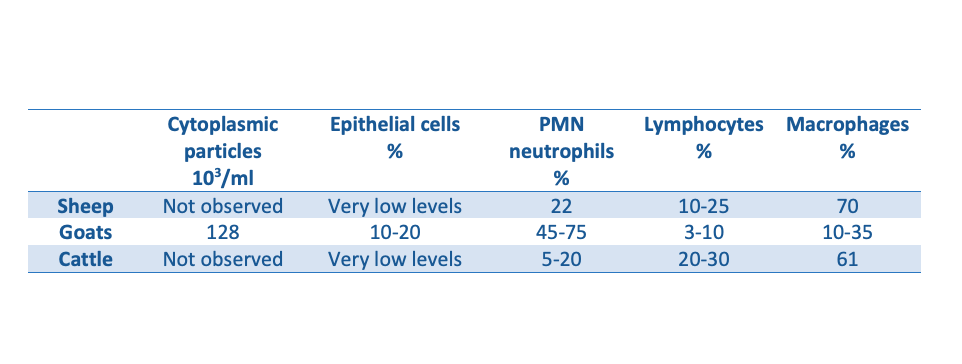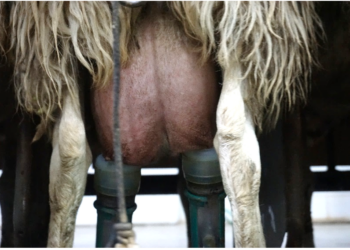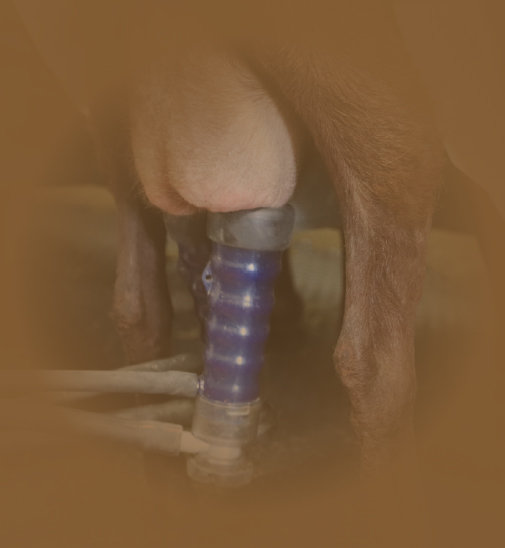Where do somatic cells come from?
Somatic cells come from the animal’s body, so other microorganisms such as bacteria are not included in the SCC.
The SCC varies in each species, and the peculiarities of sheep and goats must be taken into account.
These can be classified into two types:
– Epithelial cells: come from the regeneration and desquamation of the tissue of the alveoli and ducts. The presence of these cells is normal and is not related to any pathology.

We can also find cell fragments. This point is relevant in goats, since the secretion of milk components is of the apocrine type, which means that they are released in cytoplasmic particles. In sheep, these particles are very rare, since the secretion is mainly of the merocrine type.
– Blood cells: the migration of leukocytes to mammary tissue is the first line of protection against pathogens. These cells are found in healthy udders, but when inflammation occurs, their transfer to milk increases.
The presence of leukocytes in milk is an indicator of udder health
In sheep, the most predominant cells are macrophages, while in goats they are polymorphonuclear (PMN) cells.

What factors can increase the SCC?
1. Inflammatory factors:
– Infectious: Intramammary infections are the main cause of increased SCC. In both sheep and goats, the main pathogen causing clinical mastitis is Staphylococcus aureus... Regarding subclinical mastitis, which is the most prevalent, the most important pathogens are coagulase-negative staphylococci (CNS).
– Non-infectious: trauma, drug administration, physical activity…
To interpret the SCC, physiological and environmental factors must also be taken into account.
2. Non-inflammatory factors: Number of lactation, days in lactation, milking routine, number of milkings/day, productive level, drying, breed, hormones, stress, feeding, seasonality…
3. Other factors: counting technique, sample conservation…
Conclusions
A good understanding and proper interpretation of SCC are essential to assess the quality of sheep and goat milk.
They will also allow us to detect udder health problems and implement the most appropriate control measures, such as vaccination against mastitis.
Article written by:
Tania Perálvarez Puerta. Global Product Manager, Small Ruminants Franchise – HIPRA




